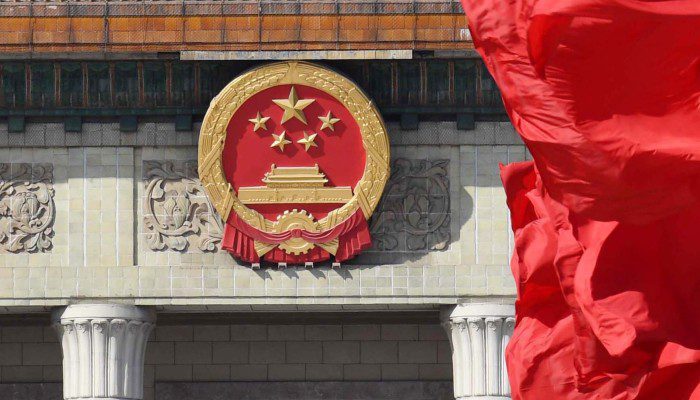The Chinese Accounting Standards for enterprises usually differ from that of international practices such as the International Financial Reporting Standards (IFRS). Any business operating in China must stay updated with the CAS to ensure their smooth accounting works. Thus, they can avoid complications in their annual reporting when the time comes.
Take time to read our article on 2020 Annual Closing Reminders for Businesses
What are the major changes in the CAS? How are enterprises supposed to prepare for these changes?
Major Chinese Accounting Standards with the revisions
Chinese Accounting Standards for Business Enterprises No.14 – Revenue
- The new CAS No. 14 unifies the current revenue recognition model with the construction contract which will no longer differentiate the different types of transactions.
- It also replaces the transfer of risk and rewards with the transfer of control as the criterion for determining contract revenue.
- CAS No. 14 introduces performance obligation in a contract where enterprises should determine and allocate the transaction price.
- CAS No. 14 provides clearer guidance on the accounting treatment of contracts including multiple transaction arrangements.
- Revenue recognition and measurement of certain specific transactions (or events) indicate clearer regulations.
Five-step method for recognizing and measuring revenue
1. Identify the contract with the client: Evaluate contracts in terms of their price concessions and whether they meet the new standard for credit risk assessment policies.
2. Identify the obligations deriving from the contract (for example, the transfer of goods): This requires companies to identify all promised goods or services in a contract and determine whether to account for each promised good or service as a separate performance obligation.
3. Determine the transaction price: Determine the transaction price for consideration (payment for a product or service) an entity is expected to receive. It may include a variable consideration which is estimated using either an expected value or most likely outcome method, whichever provides the best estimate.
4. Allocate the transaction price among the obligations: Allocate the transaction price for two or more performance obligations in the contract based on the “standalone selling price”. That allocation may need to be adjusted if variable consideration or discounts apply exclusively to only certain performance obligations. Consider loyalty programs when allocating the transaction price.
5. Recognize the revenue when each obligation is fulfilled: Revenue should be recognized when control of the goods or services is transferred to the customer. An entity should not recognize revenue for products held by its customers on consignment.
The new revenue standards implicated on CAS No. 14 have a significant impact on the following transactions:
- Sales contract with a right of return;
- Sales contract with warranties;
- Distinction between the principal and the agent;
- Sales contract with customer’s additional purchase options;
- Licenses of intellectual property;
- Buyback;
- Advanced payments;
- Non-refundable initial payments;
- Copyright distribution; and
- Advertising production and launch via online & new media.
In addition, the new revenue standards will have an impact on other aspects of the business including but not limited to:
- Bank covenants;
- Compensation and bonus plans;
- Ability to pay dividends.
Chinese Accounting Standards for Business Enterprises No.21 – Leases
CAS21 has removed the differentiation between operating and finance leases, therefore they will be both recognized in a company’s balance sheets. It also introducess the terms “identified assets” and “right to control”. The new leasing standard also stipulates how to split the contract with lease and non-lease components, and under what circumstances multiple contracts should be merged into one lease contract for accounting treatment.
The change in CAS No. 21 will impact particularly the retail, property, shipping, and aviation sectors that use leasing negotiations to assess high-value assets.
Chinese Accounting Standards for Business Enterprises No.22 – Recognition and Measurement of Financial Instruments
CAS No. 22 changes the classification of financial assets from “four categories” to “three categories”.
- The newly revised standards for the recognition and measurement of financial instruments stipulate that the “business model” and “contractual cash flow characteristics of financial assets” held by enterprises are used as the judgment basis for the classification of financial assets.
Chinese Accounting Standards for Business Enterprises No.23 – Transfer of Financial Assets
CAS No. 23 changes the impairment of financial assets from “incurred loss method” to “expected loss method”.
- The newly revised standards for recognition and measurement of financial instruments change the accounting treatment of impairment of financial assets from “incurred loss method” to “expected loss method”. This requires consideration of the future expected credit loss of financial assets to ensure more timely and sufficient provision for impairment of financial assets. This will also reveal, prevent, and control the credit risk of financial assets.
Chinese Accounting Standards for Business Enterprises No.24 – Hedge Accounting
Hedging accounting better reflects the risk management activities of enterprises.
- The newly revised hedge accounting standards emphasize the organic combination of hedging accounting and enterprise risk management activities and achieve many breakthroughs in broadening the scope of hedging instruments and hedged items. It replaces the quantitative requirements of current standards with qualitative hedging effectiveness requirements. It also allows the “rebalancing” of the hedging relationship by adjusting the number of hedging instruments and hedged items.
In addition, the authorities have adjusted and improved the accounting standards related to new financial instruments in the following aspects:
- Simplification of the accounting treatment of embedded derivatives;
- Adjustment of the accounting treatment of non-trading equity instrument investment;
- Further clarification of the judgment principle and accounting treatment of financial assets transfer;
- Improvement in the accounting treatment method of the time value of the interim right of hedge accounting;
- Increase in the fair value option of risk exposure in hedge accounting.
Chinese Accounting Standards for Business Enterprises No.37 – Presentation of financial instruments
The Ministry of Finance will implement CAS No. 37 starting from January 1, 2021, to non-listed enterprises that are subject to CAS. The presentation of financial instruments involves the recognition of a financial instrument as a financial asset, financial liability, or equity instrument.
CAS 21 vs. IFRS 16 and ASC 842 counterparts
- CAS No. 21 does not extend its scope to investment and land lease as compared with IFRS 16.
- It allows the use of the cost model for subsequent calculations of the right-of-use asset (IFRS 16 does not do so).
- It specifies that lease liability shall be presented separately for non-current liabilities due within one year; and that the principle and interest paid to be recorded under financing activities of the cash flow statement (IFRS 16 does not do so).
- CAS No. 21 does not differentiate operating lease from finance lease which ASC 842 does.
Read more: Chinese Accounting Standards: An Introduction to CAS vs. IFRS 19
Update on insurance contracts
Chinese Accounting Standards for Business Enterprises No.25 – Insurance Contract
Although substantially converged with the International Financial Reporting Standards (IFRS), and there is a commitment for at least some domestic companies to adopt the standards, there is no concrete timetable yet for the completion of the integration, per the governance. The Chinese Ministry of Finance (MOF), who is responsible for the oversight of the Chinese Accounting Standards is represented in the IFRS Advisory Council by Mr. Xianzhong Li starting 2021 January 1, for a three-year period.
In its goal to converge the CAS to the IFRS, the MOF issued a revised regulation regarding IFRS no. 17. The implementation is set to two stages:
- On or before January 1, 2023: Companies listed at home and abroad and companies that are listed overseas adopting to IFRS to prepare financial statements
- From 2026: All other companies implementing the accounting standards for business enterprises
The purpose of such a standard is to meet the developing economy, standardize accounting treatment of insurance contracts, and improve accounting information quality. Moreover, enterprises that will implement this standard are no longer required to follow the previous Chinese Accounting Standards for Business Enterprises No.25 issued in 2006.
Key takeaways: how to prepare for the Chinese Accounting Standards (CAS) changes
The new CAS will apply to all enterprises from this year. Therefore, business enterprises should prepare and consider the following perspectives to cope up with the key changes.
- Conduct a comprehensive review and analysis of the different types of business contracts on the company’s revenue and cost recognition as well as the leasing accounting treatments.
- Start-ups that plan to be listed and enterprises in new industries, or with new initiatives or with new business models must understand the impact of the new accounting standards and strictly follow them.
- Foreign-invested enterprises should communicate with their headquarters in a timely manner and analyze relevant adjustments to be made.
Contact us
S.J. Grand’s tax and accountancy services provide advisory on China’s tax, accounting standards, and business regulatory environment as well as assist in annual closing for foreign individual workers and enterprises in China. Contact us to get you started.
If you are interested to know more about how Kwikdroid works, contact us, or go to our Kwikdroid page to check the prices and packages we offer, no matter the size or type of company.







